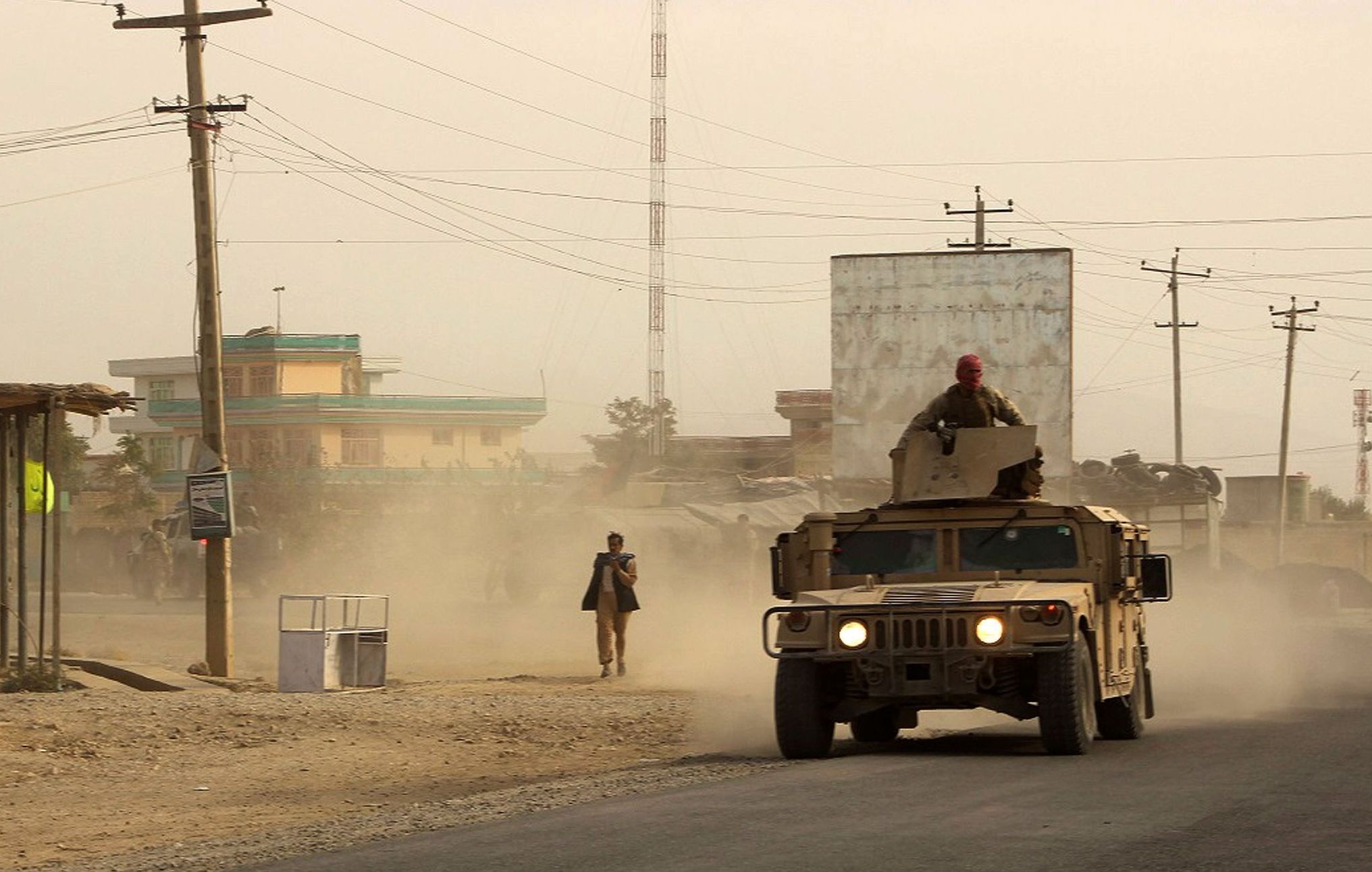Explosions echoed across Kunduz as Afghan commandos drove back a Taliban assault on Monday, forcing residents to shelter in their homes, a year after militants briefly seized the strategic provincial capital.
Government helicopters were targeting gunmen from the air in a bid to repel the attack, which came a day before President Ashraf Ghani was due to meet world powers at a major donors’ conference in Brussels.
The militants were driven out of the city centre by late Monday, NATO and local police said.
“Government controls Kunduz City & Afghan security forces are in control of the main square with additional troops coming,” the NATO forces stationed in Afghanistan said on Twitter.
“US forces have multiple assets & enablers in area to provide support.”
Pentagon spokesman Navy Captain Jeff Davis said the United States had conducted air strikes in support of Afghan troops, and special operations forces were also on hand.
“The situation there remains fluid, we are continuing to watch it closely and to work with our Afghan partners,” he said.
Kunduz police chief Kassim Jangal Bagh confirmed that Afghan forces were in control.
“The city centre is now in our hands and not in their hands. We are launching an attack to clean up the area,” he told AFP.
Earlier in the day the provincial governor’s office said Afghan commandos flown in from Kabul to boost local forces had begun pushing the insurgents back to the city’s outskirts.
Special forces could be seen in the streets and some shops and businesses briefly reopened even as the sounds of fighting continued, an AFP correspondent said.
“Their attack has been repelled and the security forces are retaking the areas they had lost,” governor Assadullah Omerkhil told reporters there, adding that “tens” of Taliban had been killed.
Doctor Naeem Mangal, head of the Kunduz central hospital, said 43 civilians wounded by bullets and shrapnel had been brought in, with one dead body.
The Afghan interior ministry said one policeman had been killed and four wounded. It was not clear if they were included in the hospital’s toll.
The insurgents, who are known to exaggerate their claims, said they had killed multiple soldiers.
Fighting was also reported along the Kunduz-Baghlan highway.
Donor fatigue
The attack comes just over a year after the Taliban overran Kunduz, the only provincial capital to have fallen into their hands since they were ousted from power in 2001. Government control of the city has been shaky ever since.
During that attack, Afghan forces were in disarray and US Green Beret special operations troops ended up helping the fight over several gruelling days, according to a declassified US military report.
On Monday, however, the Afghan interior ministry said security forces were “fighting bravely against the terrorists.”
Ghani will meet world leaders in Brussels on Tuesday and Wednesday in a bid to secure financial aid from the international community up to 2020.
The meeting, 15 years after the US invasion of 2001, will try to drum up support despite donor fatigue compounded by conflicts in Syria and Iraq plus the worst migration crisis since World War II.
Financial support is “crucial,” officials said ahead of the conference, whose attendees include US Secretary of State John Kerry and UN Secretary-General Ban Ki-moon.
“Nobody can afford for Afghanistan to destabilise again,” a senior EU official said.
Six people were also killed in a blast in northern Jawzjan province, and as a suicide bomber killed a police district chief in the volatile southern province of Helmand.
On Sunday, the Taliban issued a statement accusing foreign contractors of pocketing aid money, and calling for the conference to result in the withdrawal of international forces.
After seizing Kunduz on September 28, 2015, the Taliban held the city for two days and eventually announced they were withdrawing from the outskirts on October 15. More than 280 people were killed and hundreds wounded.
A US air strike during the fighting hit a hospital operated by Medecins Sans Frontieres on October 3, killing 42 people.










